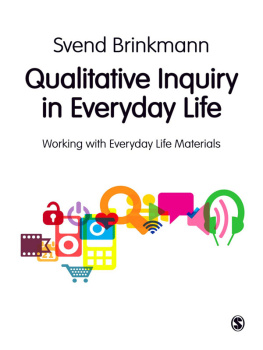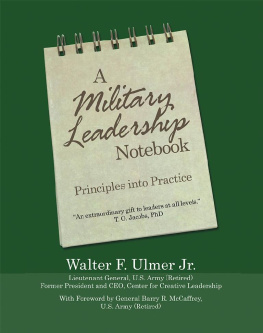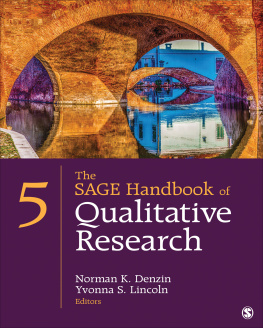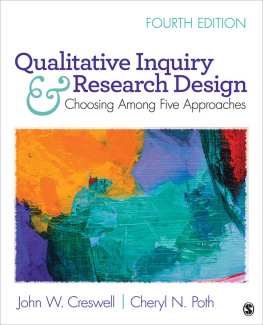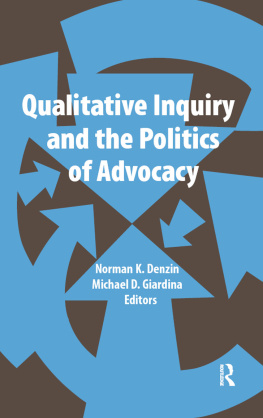
Shared and Collaborative Practice in Qualitative Inquiry
Shared and Collaborative Practice in Qualitative Inquiry: Tiny Revolutions is a short collection of reflections on ethical research practice and scholarly community. It explores the qualitative tradition through the process of writing, photography, dance, and narrative.
This is a book about ethical research practices, about simple truths, about the commitments we initially made to this work, and about how we might better support each other along the way. Most importantly, this is a book about finding and making our own communities. Communities do not belong to any one person or small group of people. Rather, communitiesgenuine, real, and vibrant communitiesbelong to us all. This is a book about how.
This book is suitable for people new to qualitative research and seasoned researchers who would like to explore and develop traditions in qualitative inquiry.
Jasmine Brooke Ulmer is an assistant professor at Wayne State University, where she directs the qualitative doctoral track in the College of Education.
Developing Traditions in Qualitative Inquiry
Series Editors: Jasmine Brooke Ulmer and James Salvo, Wayne State University
The Developing Traditions in Qualitative Inquiry series invites scholars to share novel and innovative work in accessible ways, ways such that others might discover their own paths, too. In acknowledging who and what have respectively influenced our work along the way, this series encourages thoughtful engagements with approaches to inquiryones that are situated within ongoing scholarly conversations. Neither stuck in tradition nor unaware of it, volumes make new scholarly contributions to qualitative inquiry that attend to whats shared across disciplines and methodological approaches. By design, qualitative inquiry is a tradition of innovation in and of itself, one aimed at the target of justice.
From multiple perspectives and positionalities, concise volumes in this series (20,000 to 50,000 words) strengthen and grow the qualitative community by developing inquiry traditions as they should be developed: inclusively, diversely, and together.
For more information about the series or proposal guidelines, please write the Series Editors at .
Volumes in this series include:
Shared and Collaborative Practice in Qualitative Inquiry
Tiny Revolutions
Jasmine Brooke Ulmer
Writing and Unrecognized Academic Labor
The Rejected Manuscript
James M. Salvo
For a full list of titles in this series, please visit: www.routledge.com/Developing-Traditions-in-Qualitative-Inquiry/book-series/DTQI
Shared and Collaborative Practice in Qualitative Inquiry
Tiny Revolutions
Jasmine Brooke Ulmer
First published 2021
by Routledge
2 Park Square, Milton Park, Abingdon, Oxon OX14 4RN
and by Routledge
52 Vanderbilt Avenue, New York, NY 10017
Routledge is an imprint of the Taylor & Francis Group, an informa business
2021 Jasmine Brooke Ulmer
The right of Jasmine Brooke Ulmer to be identified as author of this work has been asserted by her in accordance with sections 77 and 78 of the Copyright, Designs and Patents Act 1988.
All rights reserved. No part of this book may be reprinted or reproduced or utilised in any form or by any electronic, mechanical, or other means, now known or hereafter invented, including photocopying and recording, or in any information storage or retrieval system, without permission in writing from the publishers.
Trademark notice: Product or corporate names may be trademarks or registered trademarks, and are used only for identification and explanation without intent to infringe.
British Library Cataloguing-in-Publication Data
A catalogue record for this book is available from the British Library
Library of Congress Cataloging-in-Publication Data
A catalog record has been requested for this book
ISBN: 978-0-367-35579-1 (hbk)
ISBN: 978-0-429-34043-7 (ebk)
Typeset in Times New Roman
by Newgen Publishing UK
To James
Contents
A book on shared and collaborative practice is not written alone. Given the series focus on continuities, I would like to express gratitude to the many qualitative scholars who have shaped my work and created space for the writing that appears here, including those who reviewed the initial set of book and series proposals.
This book was made possible by a 20172018 Wayne State University Humanities Center faculty fellowship on the topic of revolution. It was also made possible by a pre-tenure sabbatical with support from my program, college, and university, as well as support from my awesome methodological colleagues, Barry Markman and Shlomo Sawilowsky. I am also grateful for opportunity to spend several months as a visiting scholar at the University of Ghent.
This book was also made possible by Routledge. Thank you to Una McGovern for wonderful copyediting and to Amy Kirkham and Matt Bickerton for seeing this book through. Indescribable thanks are due to Hannah Shakespeare for not only supporting this book and this series, but for being a wonderful person. Hannah, you are a beacon of light. I am appreciative that Shared and Collaborative Practice will be a companion piece to Writing & Unrecognized Academic Labor.
I am forever grateful to James Salvo, the best kind of personal and professional partner.
Uncertain times
It is difficult, nowadays, to know what to do or where to begin.
It has been this way for quite some time now, even before the world suddenly changed. When I started this book, I had hoped thatin some small waythis book might respond to the ways in which humans have relentlessly been inflicting violence on each other and on the earth. As I finish this book, I find myself writing from one of the early epicenters of an event that is already being described as Pandemic 1an event in which long-standing disparities continue to be made more visible each and every day. I struggle for words amidst a silence punctuated only by the surveillance of circling helicopters and the sirens of ambulances making one-way trips. Unimaginable loss has already arrived. Worse, on so many levels, it seems here to stay.
I am not sure precisely how or what one is supposed to write in the middle of a pandemic, and I apologize for places where I have missed the mark. I recognize that what I wrote before may read differently mid- and post-pandemic, particularly as we search to recognize ourselves in this rapidly changing world. I had finished the manuscript before this all occurred, and although I had been planning to do one last round of revisions to smooth out the text, Ive since decided to leave it as is. What follows from this point forward are words I wrote when we lived in a different world than the one we live in nowwords written for an Anthropocene in which humanity might still have ten more years to create meaningful change. Ill let those words remain in place as a marker for what was on the chance that any of it might still be useful for what still might be.





